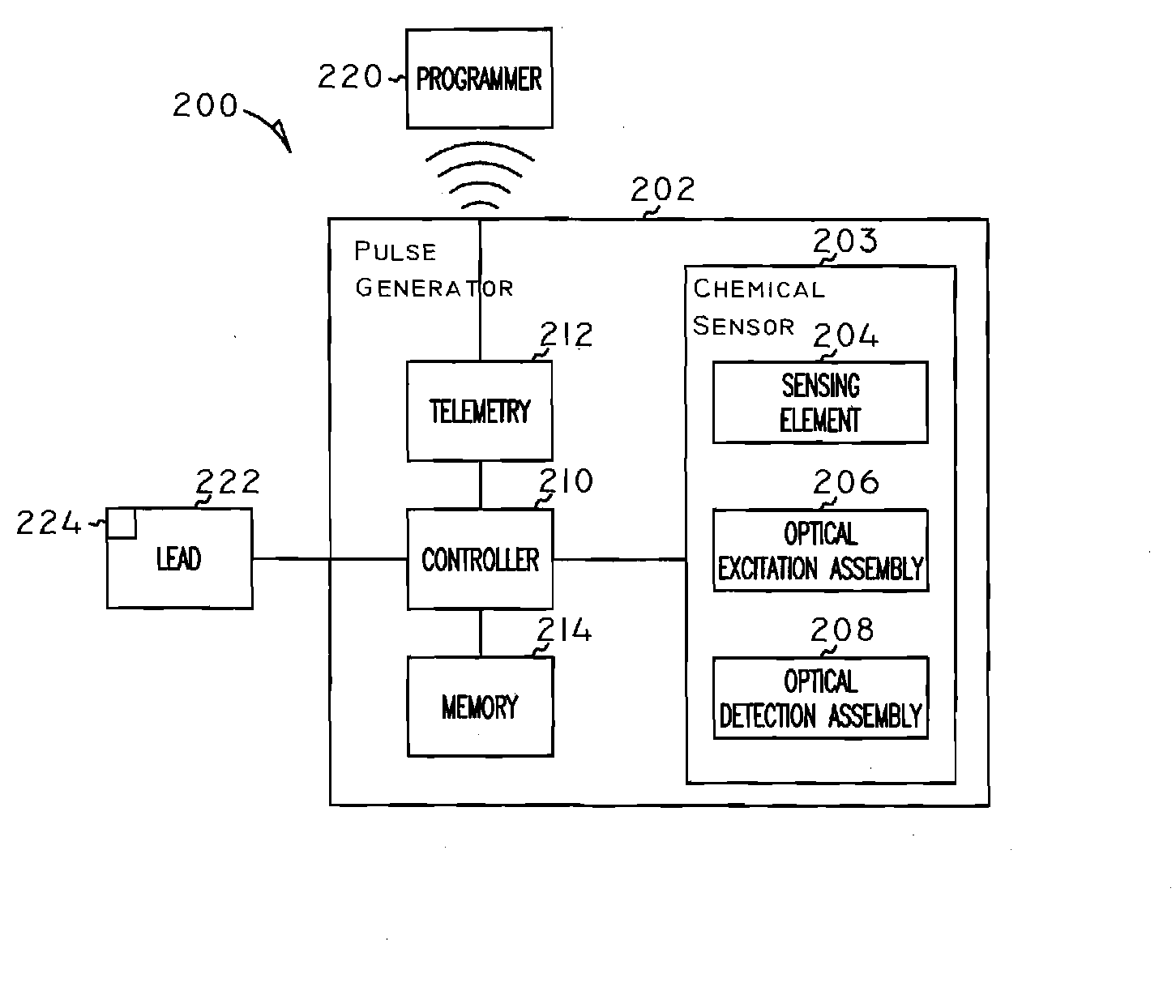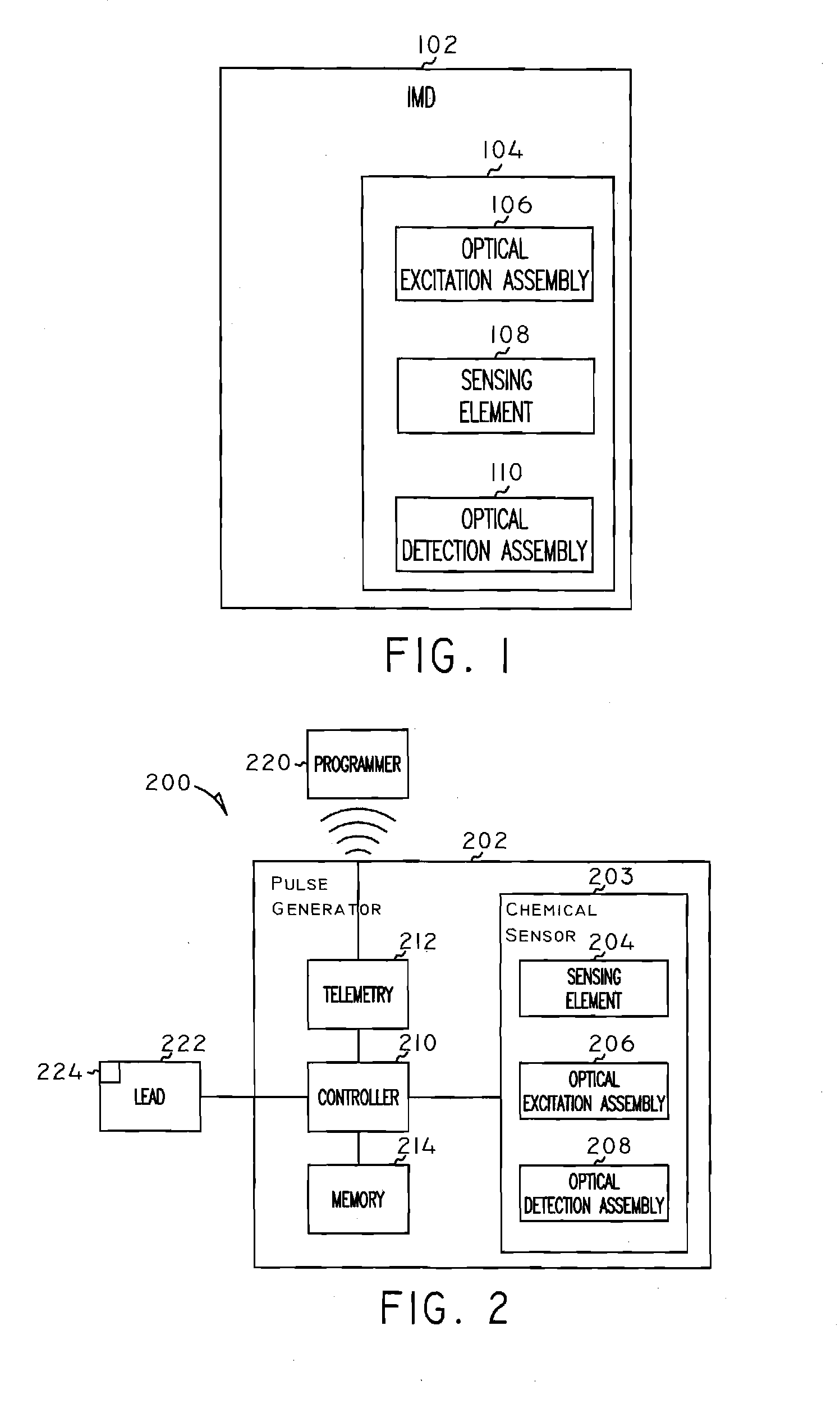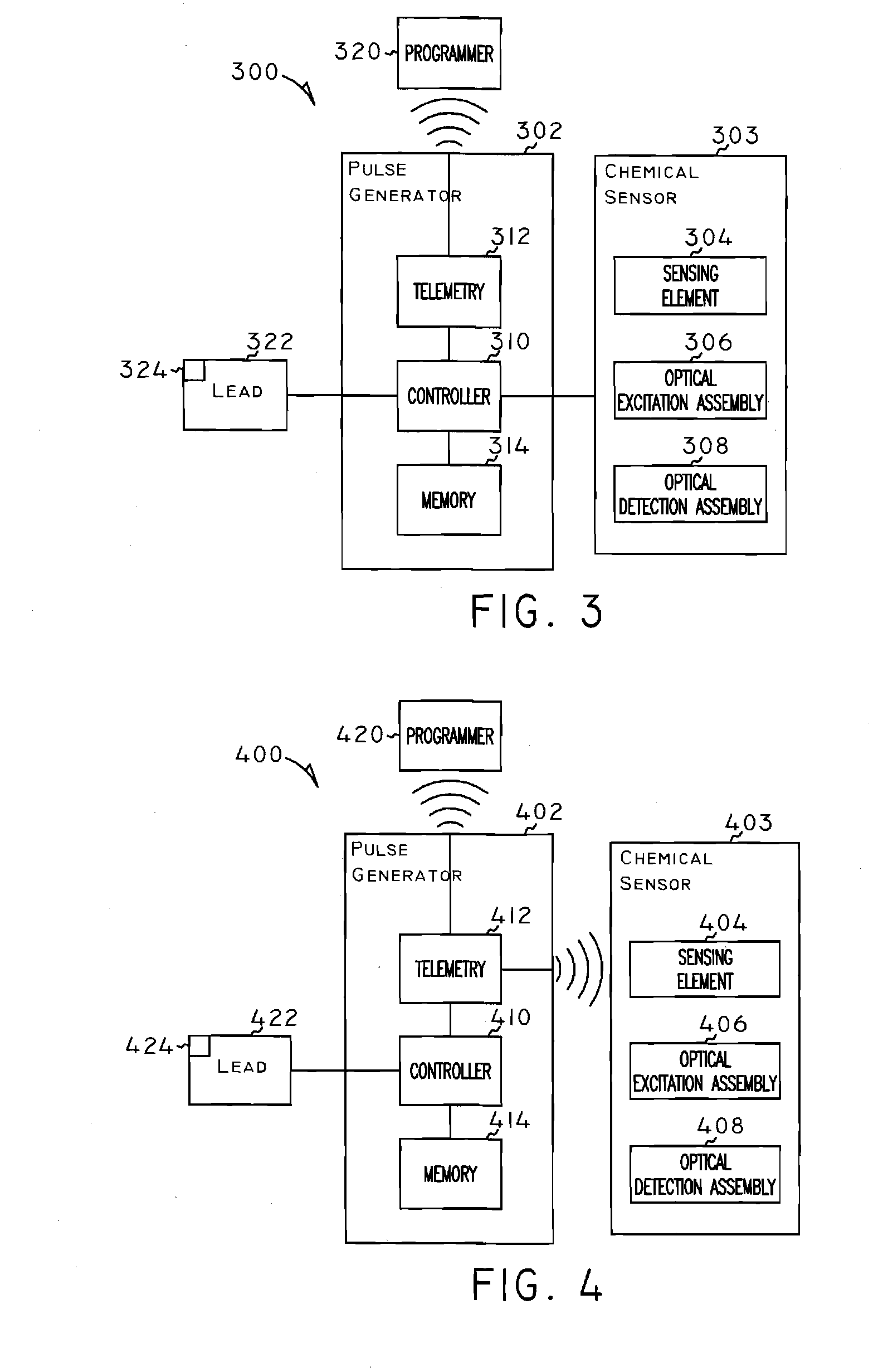Implantable Medical Device with Chemical Sensor and Related Methods
- Summary
- Abstract
- Description
- Claims
- Application Information
AI Technical Summary
Benefits of technology
Problems solved by technology
Method used
Image
Examples
example 1
Determination of Ion Concentration within Pocket
[0139]The objective of this study was to evaluate the potential effects of the fibrous capsule surrounding an Implantable Cardiac Defibrillator (ICD) on sodium, potassium and glucose concentrations immediately surrounding the device. Twelve canines were implanted with an ICD device and cared for in accordance with standard laboratory procedures. After a period of time (specified in Table 1 below), fluid was collected from inside the implant encapsulation tissue (or pocket) and compared with corresponding blood serum. An amount of fluid sufficient for testing was drawn from eight of the twelve canines (insufficient amounts of fluid were collected from the other four). K+, Na+, Glucose, and pH and concentrations were measured using a Radiometer ABL 825 blood analyte monitor for samples from those eight canines. Serum samples were also drawn from the twelve animals and similarly analyzed with the Radiometer ABL 800 blood analyte monitor. ...
example 2
Planar Ion Selective Optical Sensing Element
[0141]CUPROPHAN® cellulose sheets infiltrated with glycerol (Akzo Nobel Chemicals; Chicago, Ill.) are washed with deionized water (10 minutes) to remove the glycerol. Each sheet is stretched on a glass plate and dried at room temperature.
[0142]A. Overcoat
[0143]An overcoat solution is prepared by dissolving 4 g dextran (MW 2,000,000) in 200 mL deionized water at 50° C. Then, 2 g MARASPERSE DBOS-4® dispersing agent (Diashowa Chemicals, Inc.; Rothschild, Wis.) is added and the mixture is shaken. Thereafter, 4 g MONARCH-700® carbon black (Cabot Corp.; Waltham, Mass.) is added with sonication to produce a uniform aqueous dispersion of carbon-black. To the dispersion is added 4 g 50% (aq.) NaOH solution with mixing. Subsequently, 6 g of a 50% ethylene glycol diglycidylether (EGDGE) solution in deionized water is mixed in. The resulting overcoat solution is sprayed evenly onto the CUPROPHAN® membrane and allowed to dry.
[0144]B. Crosslinking
[0145]...
example 3
Ion Selective Sensing Element in Hydrogel
[0154]A. Preparation of 1:1 Dimethylacrylamide:Vinyl Dimethylazlactone (DMA:VDM) Copolymer
[0155]A solution of 70 parts dimethylacrylamide (DMA) and 70 parts 2-vinyl-4,4-dimethyl-2-oxazoline-5-one (vinyldimethylazlactone, VDM, commercially available from SNPE, Princeton, N.J.) in 210 parts methylethyl ketone (MEK) is mixed with 0.7 parts N,N′-azobis(isobutyronitrile) initiator (AIBN, commercially available as VAZO® 64, Wako Chemicals USA, Inc., Richmond, Va.). The mixture is sparged with nitrogen for 5 minutes, then sealed in ajar and tumbled in at 60® C for 24 hours.
[0156]B. Lithographic Patterning of DMA:VDM Using 4-(p-Azidosalicyamido) Butylamine (ASBA)
[0157]Under low-lighting conditions, 25 mg of 4-(p-azidosalicyamido)butylamine (ASBA, commercially available from Pierce Chemical Co., Rockford, Ill.) and 10 mg of 1-ethyl-3-(3-dimethylaminopropyl)carbodiimide promoter (EDC, HCl salt, Pierce Chemical Co., Rockford, Ill.) is dissolved in 0.5 m...
PUM
 Login to View More
Login to View More Abstract
Description
Claims
Application Information
 Login to View More
Login to View More - R&D
- Intellectual Property
- Life Sciences
- Materials
- Tech Scout
- Unparalleled Data Quality
- Higher Quality Content
- 60% Fewer Hallucinations
Browse by: Latest US Patents, China's latest patents, Technical Efficacy Thesaurus, Application Domain, Technology Topic, Popular Technical Reports.
© 2025 PatSnap. All rights reserved.Legal|Privacy policy|Modern Slavery Act Transparency Statement|Sitemap|About US| Contact US: help@patsnap.com



